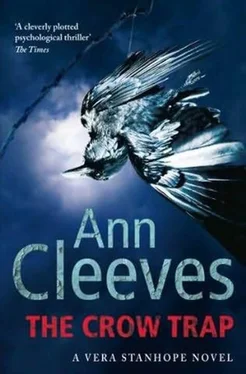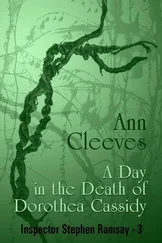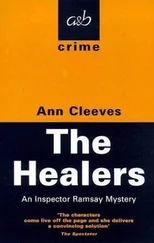But he seemed to be away for hours and it came as a shock when at last she heard the engine of his car. She rushed out into the yard but it had driven off at great speed. She had to walk up the track and close the gate behind him. He had driven on towards the ford without bothering to stop and shut it.
Later she tried to phone him at his office, but his secretary, who must have recognized her voice, said that he wasn’t taking any calls.
At first she was surprised when Grace was late back from the hill.
She’d thought they’d come to an understanding, had even thought they might get on better for the remainder of the project. Then she thought Grace was making a point, letting Anne know that her cooperation couldn’t be taken for granted. She tried to tell Rachael that there was probably nothing to worry about, but Rachael insisted on going out there herself, screaming and making a scene.
Later, when it got very dark and still Grace hadn’t returned, Anne wondered if Godfrey had followed her and frightened her off. Usually she wouldn’t have said that was in character at all in every situation he was understated, undramatic but today he had behaved very oddly.
Rushing away without talking to her then refusing to take her calls, that wasn’t like him. Anne thought it probably wouldn’t have taken a lot to scare Grace off. You could tell she was pretty near the edge already. Anne could imagine her walking to the nearest road and hitching a lift back to where she’d come from. Wherever that was.
In the end she couldn’t stand Rachael’s melodramatics any longer. She’d put on a brave face but she was panicking about Godfrey. About losing him. She hadn’t realized how much a part he’d been of her plans for the future. She went to bed and although she hadn’t expected to, she went to sleep very quickly. She didn’t hear the arrival of the mountain rescue team and the first she knew of Grace’s death was the sound of Rachael snivelling at the bottom of the stairs, early the next morning.
Grace
The day after her arrival at Baikie’s Grace woke suddenly. The room was filled with light and she knew she had overslept, thought with a sudden panic that she might be in trouble. She looked around the room, not sure for a moment where she was. There were bunk beds, crammed into the big room so as many students as possible could be accommodated on field trips. They had been stripped of sheets but each had a grey blanket folded at the foot. The pillows were covered with striped cases. There was a musty, institutional smell. For an instant she was reminded of another place where she had stayed and she was confused.
Then Rachael shouted up the stairs that coffee had been made if Grace wanted some.
“And what do you fancy for breakfast?” So she jumped back to the present. She saw that one other bed in the room had been made up, and remembered Anne, picking her up from the station and driving through Langholme. She remembered the track from the road into the forest, then out onto the open hill, the feeling that emerging from the trees was like arriving in a different world. A child’s fantasy, beyond the wardrobe door, a place anyway she’d dreamt of since she was little.
“Ibast?” Rachael’s voice was more impatient.
“Please. I’m nearly ready.”
She opened the curtains. Beyond the garden which was still in shadow, the hill was bathed in sunlight, so last year’s bracken shone like copper. She pulled on her clothes and went down to the kitchen.
“I’m sorry,” she said. “I can’t have set the alarm clock.”
She was aware of Rachael looking at her, concerned, sympathetic. She had seen that look before too.
“No problem,” Rachael said. “As long as we meet the deadline we can set our own timetable, but I thought I’d wake you. We’re sure to lose days later with the weather.” She smiled. Grace tried to respond, to be friendly too, but she felt awkward. It was more difficult with just the two of them. She wasn’t used to deceit. The kitchen was so small that they had to stand very close together and she felt exposed. Last night Anne had done most of the talking. Grace had pretended to listen but mostly she’d been able to concentrate on her own thoughts. Now she drank coffee, ate toast and as soon as possible she prepared to go outside.
“Where are you going?” Rachael asked.
“I’m sorry?”
“I need to know where you’re going. Health and Safety rules. I explained before.”
“Yes. Yes, of course.”
Rachael was still in the kitchen, standing because there was no room to sit, with a piece of toast in her hand. Grace put her map on the formica bench.
“I thought I’d start close to the cottage. I’ll just walk the Skirl today, get a feel for it, look out for spraints, see what the bank’s like. I should be back by two.”
“Good.”
Grace saw that she had reassured Rachael, who had previously been watching her rather oddly. She should take more care. It occurred to her suddenly that Rachael looked very like an otter herself, with her chunky front teeth, the brown hair which would turn grey when she was still young, the downy lip.
“Will you take sandwiches?” Rachael asked. “There’s cheese and the bread’s still OK.”
“No.” Then, seeing that more explanation was required, “I’ll get something when I get back.” In fact she’d never been much interested in food which seemed rather strange in view of her father’s profession.
From the kitchen door she walked round the house, past the tractor shed and into the front garden. There was a lawn, on which apparently students played croquet in the summer, but it hadn’t yet been cut. This was surrounded by bushes and shrubs. The boundary of the garden was marked by a dry stone wall. There was no gate onto the open hillside but a stile, in the form of a large boulder, on each side of the wall and an upright wooden stake beside it. There was a path, presumably flattened by students and sheep, which led through the bracken to the burn. The Skirl was as wide in some places as a river, and seemed to Grace a good place for otter. She imagined she could smell them.
She crossed the burn by a series of deep flat rocks. The water was very clear. The strong sunlight reflected from the surface dazzled her and she almost lost her footing. On the other side the bank had been cut away and a muddy beach had formed. She scrambled up the bank and began walking towards the old lead mine.
She walked along the bank slowly, looking for pulling-up places and spraints, the droppings which were distinctive because they smelled so strongly of fish. At university it had been a comprehensive study of the contents of otter spraints which had won her a First. That and her dedication. She’d never been distracted much by a social life or men.
In her interview for this job Peter Kemp had said: “There won’t be much to do, you know, out there on the hills. Not in the evening. You won’t be bored?” “Oh no,” she’d said quite truthfully, not telling him of course that she had her own reasons for wanting to be part of the project.
She followed the burn from the Black Law farm land towards the estate and the old lead mine. There it was channelled into stone culverts.
She presumed that once it had been used as part of the mining process.
Perhaps to wash the ore or power a wheel. The boundary between Holme Park and the farm wasn’t marked on the map, but she had added it in pencil, and she knew she must have got it right because past the mine where the burn opened out again, she came to a dead weasel which had been thrown into the water. Its gingery coat was perfect but it was quite stiff. Nearby she found the tunnel trap which had killed it. A spring-mounted trap had been placed in an old piece of piping in a gully and covered with stones. She couldn’t find signs of any other corpses, but near to the trap there lingered the smell of rotting flesh. This must be Holme Park land because only a keeper would have gone to this much trouble. She considered blocking the entrance to the trap, but thought that would be foolish. She didn’t want to draw attention to herself at this stage.
Читать дальше












